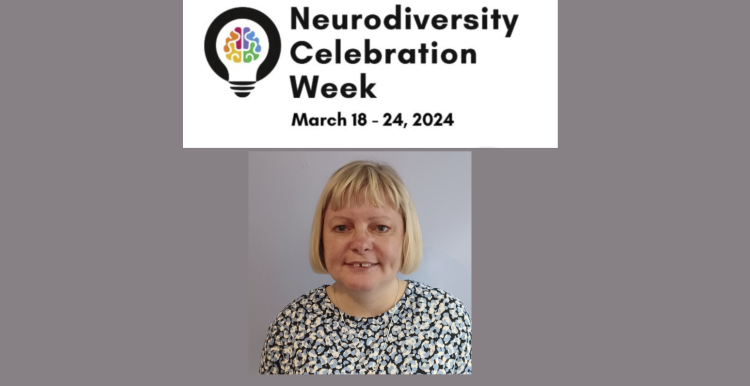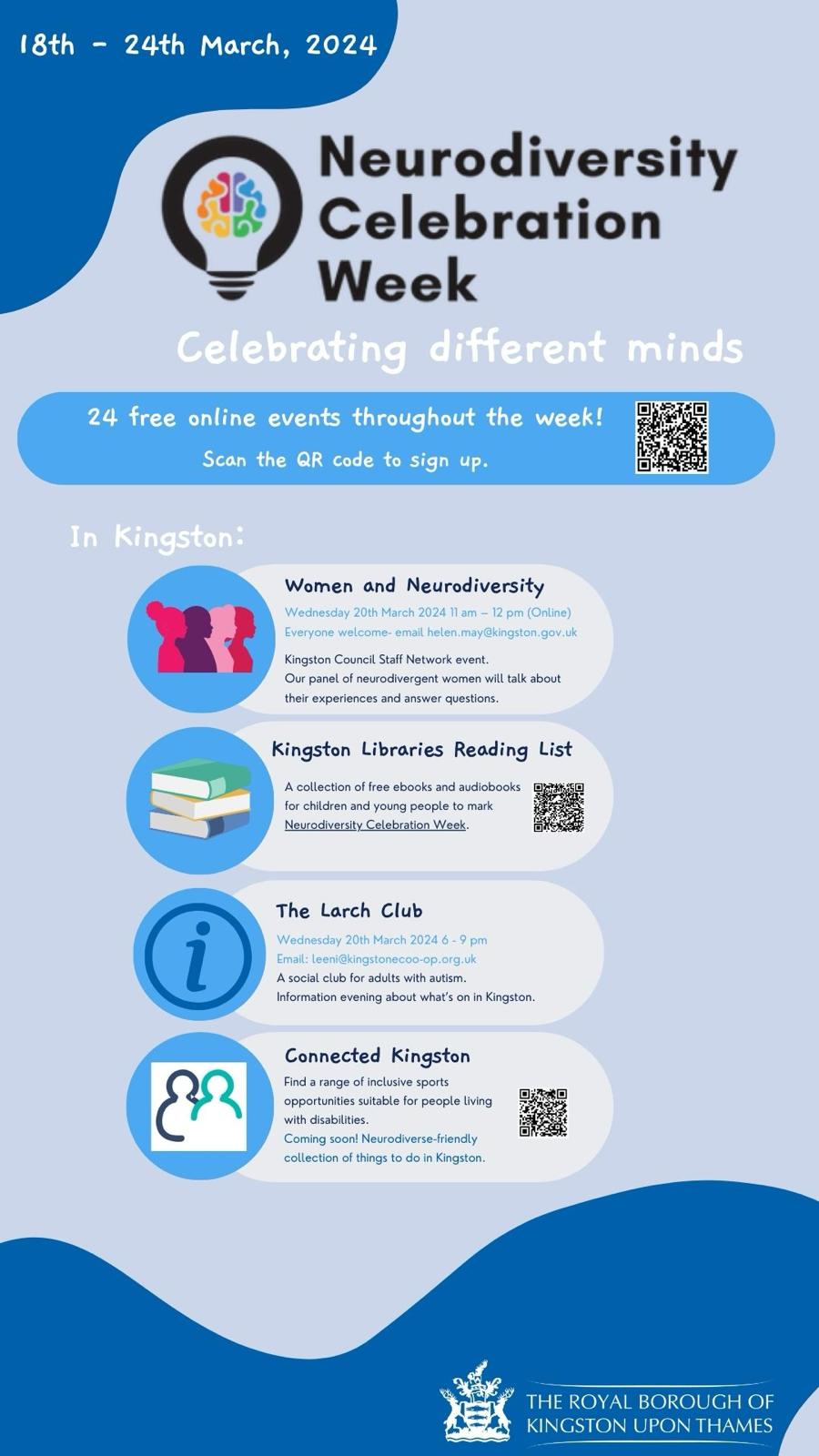Healthwatch Kingston chats to Katy for neurodiversity celebration week

Hi Katy, thanks so much for taking the time to talk to us. Can you tell me if you have a neurodiversity diagnosis? If so, what is it?
I have been diagnosed with autism.
When were you first diagnosed?
My parents noticed that I was on the autism spectrum when young, but was not officially diagnosed until I was 30 years old.
Did you find the process of receiving a diagnosis difficult or easy?
It was very difficult for my parents to find someone who would listen and make a diagnosis of my autism. It was only when I worked with the Health Team from Kingston that someone picked up that I had autism and asked to go through my childhood history.
What challenges do you face in your day to day life as a result of living with neurodiversity?
I find most day to day living a challenge. Choosing clothes, helping with planning my day, times etc. I find that talking to professional, such as the bank, doctors, optician or hospital very difficult so ask a member of my family to help.
What do you like about living with neurodiversity?
I find it all very hard, so do not like living with it.
Do you find some people struggle to understand you? If so, what would you say to these people?
My family and close friends understand me but some other people like in shops and on the phone; they do not understand. My mum often says: please speak nicely to my daughter as she has a learning difficulty and autism.
What are your hobbies (things you enjoy doing in your spare time)?
Cinema, meeting friends, watching comedy such as ‘Fools and Horses', colouring, painting by numbers, my teddies and dolls.
Is there anything more you would like to say about living with neurodiversity to help raise awareness for neurodiversity week?
People should be more understanding and tolerant towards autistic people. If I ask someone to explain something, I ask them if they could they do it an easy way. Maybe businesses and schools should be made aware of people with neurodiversity. It would be beneficial if someone with neurodiversity could speak about their experiences to these organisations.
Thanks so much for talking to us about your experience, Katy. We certainly hope others can learn more about neurodiversity based on what you have told us.
More information about what is happening in Kingston for Neurodiversity Celebration week:



